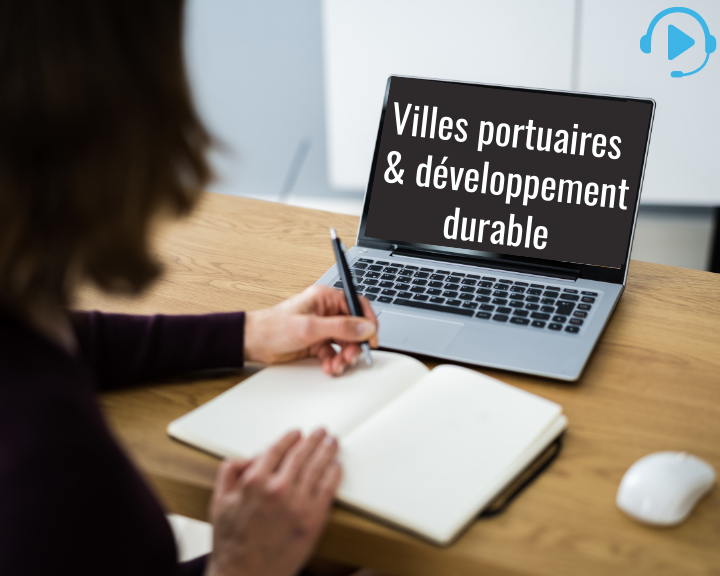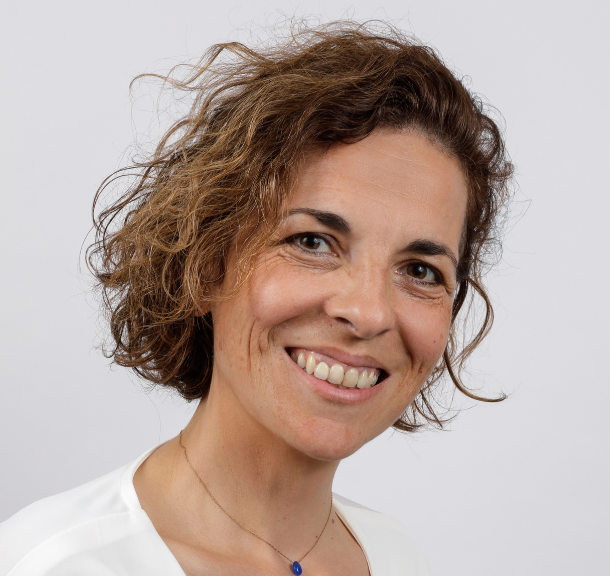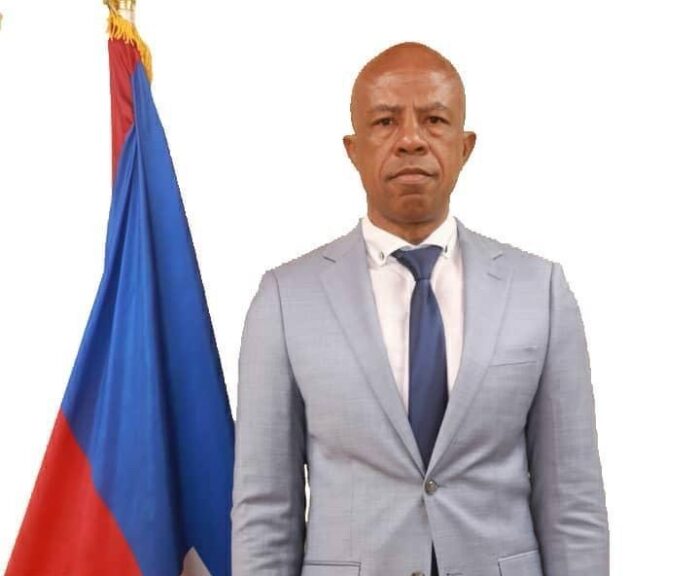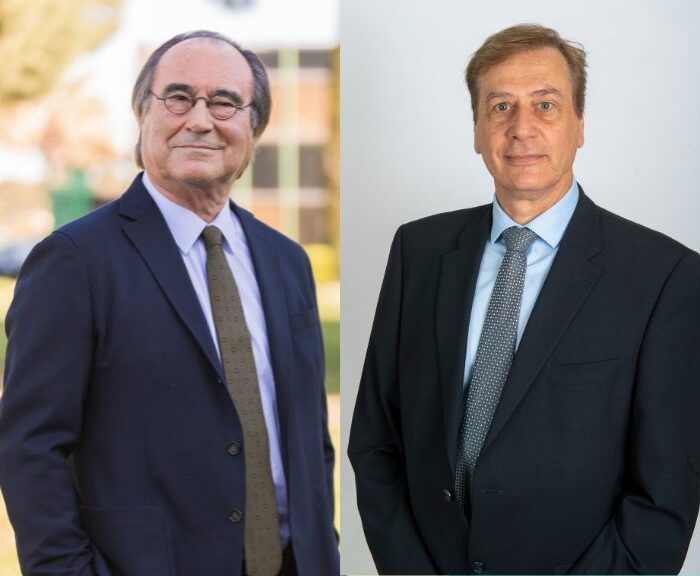In October 2022, AIVP will launch the first edition of its new programme of distance-learning courses, created jointly with the International Institute of Port Cities (IIPC), based in Chile. This programme is aimed at decision-makers who act and work in the Port City ecosystem.
Sabah Zrari, Academic Director of the course programme and one of the founders of IIPC, and Bruno Delsalle, General Manager of AIVP, talk about this initiative, which completes the range of services offered by AIVP in the framework of its 2030 Agenda.
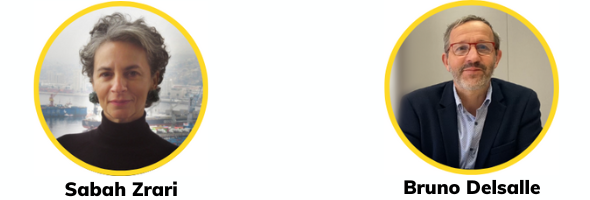
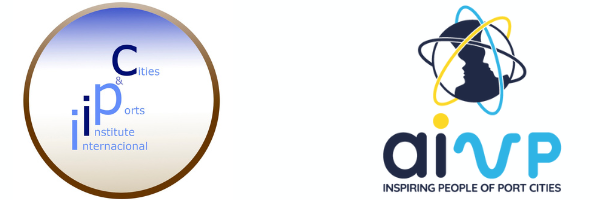
How does this course programme fit into AIVP’s development strategy?
Bruno Delsalle: With this new service, AIVP is extending its ability to support the development of port cities. Since 2019, when the AIVP 2030 Agenda was adopted by the members, many ports and many river and maritime cities have incorporated the 10 Sustainability Goals defined by the Agenda. Inspired by the good practices put forward by AIVP and all its members, these ports, cities and companies have multiplied their actions in such varying areas as energy transition, maritime identity, mobility, etc. To assess the results of these policies and these actions, AIVP is currently preparing a self-evaluation tool which will be available by the end of 2022. It seemed an important step, in parallel with this diagnostic tool, for AIVP to offer decision-makers the chance of training for the complexity of the Port City ecosystem. That is the goal of this ambitious programme of courses.
Can you give us an idea of the contents of the courses?
Sabah Zrari: The programme consists of five distance-learning courses, each taught over a 6-week period.
The first course addresses the Governance of Port Cities. This is really the backbone of the programme. It incorporates notions and concepts used in the social sciences (governance, governability, actors), case studies (comparative experiences) and empirical work (collecting information in the field), as well as a reflection on the notion of Renewed Governance (Goal 4 of the AIVP 2030 Agenda) and its application to a concrete case chosen by the student.
The second course looks at the Sustainable Economy in Port Cities. In this course, we study the economic logics that underlie the problems and challenges of ports and territories. The speakers highlight the complex interaction of geographic scales and the diversity of variables that explain the evolution of ports and their impact on territories. The course also addresses the problems of Energy Transition and Circular Economy, and Human Capital (Goals 2 and 5 of the AIVP 2030 Agenda).
The third course deals with the Urban and natural environments of Port Cities. It focuses on the impacts of port and logistical activities on territories. The problems of adaptation to Climate Change, Mobility, City Port Interfaces, Quality of Life and the Protection of Biodiversity are at the heart of this course (Goals 1, 3, 8, 9 and 10 of the AIVP 2030 Agenda).
The fourth course, entitled Identities, Cultures and Heritage of Port Cities, talks about the specific dimensions of the identity, heritage and culture of port cities. It addresses the question of the social acceptability of port and logistical activities and so refers to the problems raised by Goal 6 of the 2030 Agenda.
Finally, in the fifth and last course Prospects of Port Cities, the participants analyse experiences of their collective construction of a vision and of joint projects, before they in turn offer proposals for innovation in this field, principally at the level of methodology. The course demands collective and independent work by the students.
The programme seems very comprehensive. How far does it fit in with the spirit of AIVP?
Bruno Delsalle: The programme is really conceived as a practical tool for achieving the Renewed Governance Goal in AIVP’s 2030 Agenda for sustainable port cities: “Promoting a city port dialogue aimed at reconciling the quest for economic and environmental performance with the well-being and aspiration of the population”.
To do this, we bring together – in the same training space designed for port professionals – not only territories but also NGOs and representatives of civil society to promote mutual understanding of the problems and logics of each. We propose the dissemination of shared knowledge, with an across-the-industry approach that has been the very essence of AIVP since its creation.
Sabah Zrari: To construct this course, I started from a concrete experience which has been running in Latin America since 2019, and which has already reached more than 100 professionals. All these decision-makers, with vary varied profiles, today form an active network of ex-students which is a forum for exchanging information.
In terms of teaching techniques, the courses combine inter- and trans-disciplinary knowledge with practical case studies chosen from different geographical areas, observations made in the field, and role-plays and teamwork to develop innovative tools.
We have also sent out a questionnaire to collect the expectations and preferences of AIVP members. We invite you to answer as soon as possible. https://forms.gle/8kjC4QxtiVRnPjJeA
In very concrete terms, how will the programme work?
Bruno Delsalle: As Sabah Zrari said, the programme contains five distance-learning courses, taught in French. The courses will be taught using the Zoom platform, directly, through two 90-minute sessions per week.
Each course lasts 6 weeks. The first course will start in October this year and the last will finish in June 2023.
For the sake of the pedagogical coherence of the programme, the courses should be taken successively, however AIVP also offers very busy people the alternative of taking the five courses over a period of 2 years.
Are the students evaluated and certified?
Sabah Zrari: At the end of each course, the students will be evaluated under my responsibility; and they will receive a certificate that they have completed the course issued by AIVP and IICP. The teachers are drawn from a network of experienced people and experts associated with AIVP, giving added value to this programme taught by the first world network of port cities, recognised as such by international organisations: United Nations, OECD, European Union, World Bank, etc.
And how do people register?
Bruno Delsalle: The courses will be open for registration this summer. Every participant can decide whether to take the five courses directly, or to register for the first two (the minimum) and decide to participate in the other courses later.
Course 1 will be taught completely by the end of 2022, courses 2, 3, 4 and 5 will take place in the first half of 2023.
AIVP members, NGOs and people paying for their own course personally will enjoy a reduced tariff.
Contacts :
Registration: Corinne Lallemand / clallemand@aivp.org / +33 2 35 42 78 84
Programme and content: Sabah Zrari / sabah.zrari@iipc.cl / +56 985 670 705

